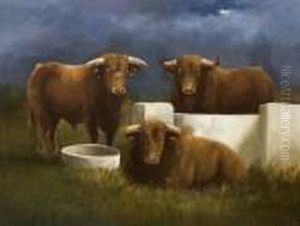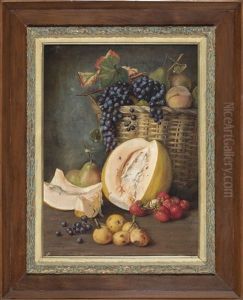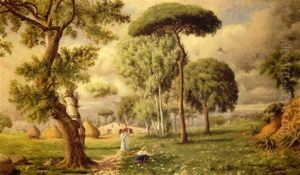Jose Joaquin Tejada Paintings
Jose Joaquin Tejada was a Cuban landscape painter who is often remembered for his contributions to the development of landscape painting in his country. Born on December 26, 1867, in Santiago de Cuba, he developed an early interest in art. Although there is not an extensive amount of biographical detail widely available, it is known that Tejada received his initial education in the arts at the San Alejandro Academy in Havana, which was the most prestigious art school in Cuba at the time.
Tejada’s work is characterized by its detailed and realistic portrayal of the Cuban countryside. He had the ability to capture the essence of the island's lush natural environments in his paintings, which often depicted scenes of valleys, mountains, and rural landscapes. His use of color and light was adept, and he was particularly skilled in reflecting the diverse and vibrant atmosphere of the Caribbean island.
Throughout his career, Tejada remained largely in Cuba, drawing inspiration from its scenery and contributing to the cultural life of Santiago de Cuba. His dedication to landscape painting played a significant role in the cultural development of the region and influenced subsequent generations of Cuban artists. Jose Joaquin Tejada’s legacy lives on in Cuba, as he is considered one of the forerunners of Cuban landscape painting, paving the way for future artists who would explore and celebrate the island's natural beauty.
Tejada passed away in 1943 in his hometown of Santiago de Cuba. His works are held in high regard and can be found in various collections, both within Cuba and internationally. Although he is not as widely known internationally as some other Latin American artists, his contributions to Cuban art have ensured that he remains an important figure in the country’s cultural history.


